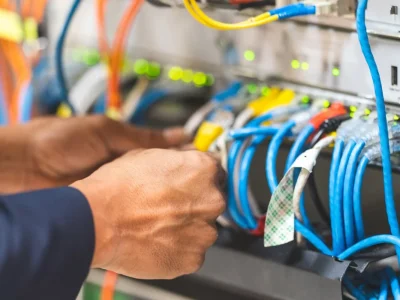
The Indian stock market keeps reaching its new low ever since the pandemic. During this time, many investments, including ULIP plans, are suffering from the impact. If you are worried about what you should do with your ULIP plan, this article helps you gain a much-needed perspective on ULIPs during volatile market scenarios.
Let us take a look at what is ULIP policy.
The Unit Linked Insurance Plan (ULIP) is an insurance instrument that offers dual benefits of life insurance cover and wealth creation – all under a single policy. Here, a part of the premium is used for insurance cover while the remaining amount is invested in market-linked funds.
The returns earned on the investment depends on the market performance of the funds. So, since the stock market has taken a hit due to lockdown, it surely has impacted the ULIP returns as well. But don’t worry. We are here to help you manage this market volatility in a better way.
Should you exit from your ULIP investments?
On seeing the market performance, an apparent reaction of most investors is to discontinue/exit from their ULIP investments. However, it is recommended to personally evaluate the impact of the market on your ULIPs before taking any decision. If your evaluation depicts that, there is not much of a negative effect of the market performance on your portfolio, you have a little less to worry.
Moreover, the decision to withdraw or exit from ULIP investments should depend on your current financial situation. If you are facing a tremendous financial crunch during this lockdown and do not have emergency funds to fall back on, you can consider exiting from your ULIPs.
ULIPs are usually long-term investments that help accomplish future financial goals such as retirement, child’s education, child’s marriage, etc. If you use the money today, you might be unable to achieve the set goals within the stipulated time.
Moreover, ULIPs come with a five-year lock-in period. If you decide to exit ULIP investments before the completion of the lock-in period, know that you will not receive the final payout immediately. Usually, the final payout will be given after completing the lock-in period. This means while you settle for low ULIP returns, you also have to wait for years until you receive the money.
So, should you continue paying ULIP premiums?
Ideally, it is a wise decision to continue investing in ULIPs, even during market volatility. The primary purpose of investing in ULIPs is to achieve the near future goals, such as covering your child’s education or retirement.
We understand the money can be tight during the lockdown for many people in India. But if you adhere to a strict budget and cut down on your expenses, you will be able to pay your insurance and investment premiums as needed. This will make sure that your future financial goals are not disrupted, and you can still accomplish them in the stipulated time.
What happens if you stop paying ULIP premiums?
At first, your insurer will give you 30 days of a grace period if you miss the ULIP premiums due date. The discontinuing of the ULIP investment depends on whether you have completed the lock-in period or not.
In case the policy is yet to complete the lock-in period, you have two options –
- You can either revive the policy within 2 years of the date of discontinuance or
- You can completely withdraw from the plan without any risk cover
If you decide to discontinue, the risk cover will cease, and the fund value will be as on the date of discontinuance. Furthermore, after deducting the applicable charges, your ULIP investment will be moved to the ‘Discontinued Policy Fund’. If you do not revive the policy within 2 years, the final payout will be done after completing the lock-in period.
To Conclude
In case you are afraid of the market volatility, you can invest in debt funds in ULIP investment instead of equity-oriented funds. ULIP debt fund option tends to offer lower risks as compared to equity funds. In all, know that any investment instrument you purchase should be aligned with your future financial goals. Also, you should continue investing in them if you hope to achieve your goals on time.











